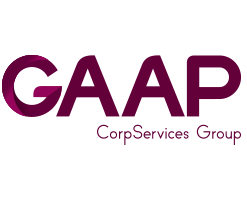![]()
Geolocation is generally a concept applied to geography. It emerged as a war strategy, but nowadays, surprisingly, its application is related to business tactics. In fact, to be more specific, it is used as a way to reduce the tax burden.
After all, Brazil makes it difficult for companies with interstate business to grow, since it is made up of 27 federative units. Since each one has its own rules, investing in tax planning is essential to avoid making fiscal mistakes.
Tax geolocation for your startup
Sometimes startups wish to be in large urban centers. However, this causes the loss of tax benefits offered by municipalities that could make a big difference in the company's revenue.
Therefore, just like any other business, startups need to rely on tax planning to make the activity viable and profitable. This advantage provides security, since it avoids operational losses, such as overpaying taxes.
Therefore, it is crucial to find the ideal tax regime for your startup.
Can taxation be simplified?
To wit, Brazil has one of the highest tax burdens among countries at similar stages of development.
In the Strategic Map of Industry 2018-2022http://www.portaldaindustria.com.br/cni/canais/mapa-estrategico-da-industria/ the National Confederation of Industry (CNI) encourages tax simplification by reducing taxes. The goal is to reduce the current eight taxes on the circulation of goods and services to just two, in four years. In addition, the goal is to end tax distortions.
ISS, for example, does not generate tax credits and is levied at all stages of a product produced in Brazil. Regarding the ICMS, there are cases in which the operation constitutes tax credits and others that do not. In summary, the final price of a Brazilian good is calculated with tax residues not offset during the chain.
It is worth mentioning that another distortion is the fact that the Union, states and municipalities do not return tax credits. However, they are a businessman's right. Therefore, CNI also encourages the reduction of the incidence of non-compensable taxes that burden investments. Similarly, it defends the improvement of taxation on income to encourage the attraction of resources.
How to choose the best tax regime for my startup?
The Simples Nacional system is the most usual for startups, because of its acceleration model. But it may be that the taxation regime changes as the business reaches maturity scenarios.
In other words, tax obligations will need to be reviewed and adapted to a new model. while a startup operates with a large flow of demands and hires many employees, foreseeing an increase in profitability, tax obligations will need to be reviewed and adapted to a new model.
It is important that this entrepreneur understands that the tax regime for the startup is made according to the real possibilities of the company, in order to avoid undue payments.
The existing tax regimes for startups
Currently, in the country, there are three models of tax regimes for startups that encompass different moments of the company. They are:
- Simples Nacional;
- Actual Profit;
- Presumptive Profit.
As mentioned before, the Simples Nacional system is recommended by accounting professionals when starting a new company. This is due to the ease of unifying taxes in a leaner structure. Moreover, Simples offers lower tax rates for businesses. Thanks to the updating of its Annexes and the calculation of the F Factor.
On the other hand, as the company grows, it is common to migrate to the Presumptive Profit or Actual Profit regime. In other words, this development implies the hiring of employees and a higher monthly turnover. These factors make it impossible for the startup to continue in the Simples model.
How to understand and keep up to date with existing taxes?
Vinicius Bentolila, tax manager at thyssenkrupp in Latin America, defines the Brazilian tax system as "quite challenging". In an interview with CNI News Agency, he explains that Brazilian companies need to deal with more than 80 tax species. Not to mention the 90 accessory obligations and administrative steps to document the payment of taxes. In addition, he says, they need to manage the payment of taxes in the three tax spheres: Union, states and municipalities.
"That's the tangible part. But there is the intangible, which is the environment of uncertainty and insecurity. As the rules change constantly, companies need to have entire departments to deal with taxation and not run the risk of being fined for a tax that should have been paid in one state but was collected in another, for example," says Bentolila.
According to the executive, it is necessary to clean up the Brazilian tax system and simplify it. This tax complexity is a problem that affects all national companies, foreign or national capital.
"It is so complex that it is not a matter of knowing the legislation and applying it. You have to keep up with the daily changes that occur. Since 1988, we have seen more than 340,000 changes in the rules. Explaining to a foreigner the ICMS, the credit system, how tax substitution is used, cumulative and cascading taxes takes hours and hours. And this is a constant in all the companies I have worked for," says the financial director of Sanofi Brazil.
Thus, relying on tax planning enables the company to analyze its figures with greater assertiveness. Meanwhile, it can identify if it is time to make a change in taxation.
In addition, tax planning can also serve as a basis for adjusting the startup's fixed and variable expenses. That is, better understanding how much the company can spend without causing an impact on tax collection. GAAP maps these opportunities and allows the achievement of the lowest possible taxation.
Throughout our trajectory, we are proud to have been responsible for the accounting structuring of some of the most successful startups in the Brazilian market. With a broad vision of the innovation universe and deep knowledge about the challenges that surround the entrepreneurs' activity, we also work as consultants, guiding decisions from the development of the business plan to the most advanced stages of raising investments.
Dessa forma, a GAAP acts as the main technical reference and supplier of strategic support for innovation hubs and some of the main initiatives aimed at the development and acceleration of startups from the most varied segments in the country.
Contact us to learn more about our services. contato with us to take a closer look at our services.








